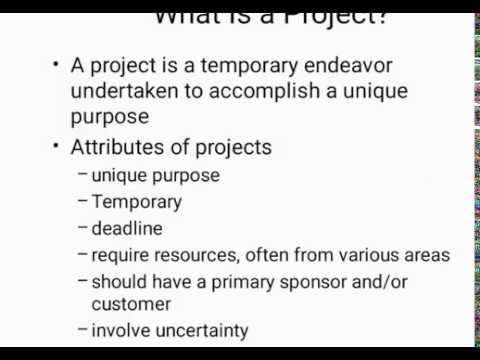
The Compensation and Benefits Manager oversees the activities of subordinate staff and ensures that departmental budgets and project milestones are met. They also have the authority to take all personnel actions. The typical experience of a compensation and benefits manager is at least five years, with one to three additional years of supervision experience. They also need to be familiar with departmental processes.
Doing job
A compensation and rewards manager oversees all aspects relating to an organization’s compensation and benefits program. The job duties include analysing data and identifying trends as well as monitoring employee benefits packages. They also consult with HR staff, managers, and department heads. The ever-changing regulations governing employee benefits are a must for compensation and benefits managers. They are responsible for making sure that employee benefits packages meet statutory requirements and comply with tax liabilities.
Compensation and benefits managers are responsible for implementing employee benefits programs that are both cost-efficient and competitive. They need to be able make decisions and evaluate programs. In addition to supporting the HR department in recruitment and hiring, compensation and benefits managers develop employee wellness programs. They also manage department budgets.

Salary
A compensation and benefits manager can earn a median salary in the region of $122,270 annually. A variety of factors affect the median salary of this position, such as education, years of experience and certification. The highest-paid compensation and benefits managers earn more than $208,000. Most compensation and benefits managers work full-time, although some work overtime or extra hours during peak times of the year. According to Bureau of Labor Statistics, the employment of compensation- and benefits managers is expected to rise 3 percent between 2018-2028.
Compensation and benefits managers oversee employee benefits and salary structures. They research and establish company policies. They ensure employees get competitive wages and benefits. The annual and quarterly reviews of the employee wage budgets are also done by compensation and benefits managers. Other compensation and benefits managers oversee other compensation specialists and ensure their accuracy. Other responsibilities include managing payroll distributions and coordinating informational events for employees regarding their benefits.
Education necessary
A bachelor's degree in business administration, or closely related, is required to be a compensation and benefit manager. You also need at least five years work experience. Some employers prefer applicants with a master's degree, however. Employer benefits and compensation plans are managed by compensation managers.
This job requires strong interpersonal skills and the ability work under pressure. They should be able to combine technical skills with human resources knowledge. Managers of compensation and benefits work full-time. They typically work forty hours or more per week. Sometimes, they might work overtime to meet deadlines. While compensation and benefits managers have a wide range of skills, they need strong leadership and management experience. They should also have a strong understanding of human psychology.

Employment outlook
Managers of compensation and benefits have many responsibilities. These individuals must be able to analyze data and make recommendations to senior management. They should also be capable of good communication skills and have a high degree of discretion and ethics. They must have a good understanding of the laws and regulations that govern compensation and benefits.
Typically, compensation and benefits managers need a bachelor's degree in business administration, human resources, or another related field. Online programs are available. A traditional degree is not required. Compensation and benefits managers can also gain valuable work experience from other areas.
FAQ
What are some common management mistakes?
Sometimes, managers make their job more difficult than it is.
They may not assign enough responsibilities to staff members and provide them with inadequate support.
A majority of managers lack the communication skills needed to motivate their team and lead them.
Some managers create unrealistic expectations for their teams.
Some managers may try to solve every problem themselves instead of delegating responsibility to others.
How can a manager motivate employees?
Motivation refers to the desire to perform well.
Doing something that is enjoyable can help you get motivated.
Or you can get motivated by seeing yourself making a contribution to the success of the organization.
You might find it more rewarding to treat patients than to study medical books if you plan to become a doctor.
A different type of motivation comes directly from the inside.
Perhaps you have a strong sense to give back, for example.
Perhaps you enjoy working hard.
Ask yourself why you aren't feeling motivated.
Then think about how you can make your life more motivating.
What are the 4 major functions of management
Management is responsible for planning, organizing, directing, and controlling people and resources. It includes the development of policies and procedures as well as setting goals.
Management helps an organization achieve its objectives by providing direction, coordination, control, leadership, motivation, supervision, training, and evaluation.
Management has four primary functions:
Planning - Planning involves determining what needs to be done.
Organizing - Organization involves deciding what should be done.
Directing - Directing means getting people to follow instructions.
Controlling - Controlling means ensuring that people carry out tasks according to plan.
Which kind of people use Six Sigma
Six Sigma is well-known to those who have worked in operations research and statistics. Anybody involved in any aspect or business can benefit.
Because it requires a high level of commitment, only those with strong leadership skills will make an effort necessary to implement it successfully.
What do we mean when we say "project management"?
We mean managing the activities involved in carrying out a project.
This includes defining the scope, identifying the requirements and preparing the budget. We also organize the project team, schedule the work, monitor progress, evaluate results, and close the project.
Statistics
- The average salary for financial advisors in 2021 is around $60,000 per year, with the top 10% of the profession making more than $111,000 per year. (wgu.edu)
- The BLS says that financial services jobs like banking are expected to grow 4% by 2030, about as fast as the national average. (wgu.edu)
- As of 2020, personal bankers or tellers make an average of $32,620 per year, according to the BLS. (wgu.edu)
- Our program is 100% engineered for your success. (online.uc.edu)
- Hire the top business lawyers and save up to 60% on legal fees (upcounsel.com)
External Links
How To
How do you apply the 5S at work?
To make your workplace more efficient, organize everything. A neat desk, tidy space, and well-organized workspace are key to productivity. The five S's, Sort, Shine. Sweep. Separate. and Store, work together to make sure that every inch of space can be used efficiently and effectively. These steps will be covered one-by-one and how they can work in any kind of setting.
-
Sort.Put away papers and clutter so that you don't waste valuable time searching for something that you know is there. This means putting things where you use them most often. You should keep it close to the area where you research or look up information. You should also consider whether you really need to keep something around -- if it doesn't serve a useful function, get rid of it!
-
Shine. Keep your belongings tidy and organized so you can spend less time cleaning up afterwards. Don't leave anything that could damage or cause harm to others. It is possible to have too many pens around and not be able to safely store them. It could be worth investing in a penholder. Pens won't get lost anymore.
-
Sweep. To prevent dirt buildup on furniture and other items, clean them regularly. To keep surfaces as clean as you can, invest in dusting equipment. You can also set aside an area to sweep and dust in order to keep your workstation clean.
-
Separate. It will help you save time and make it easier to dispose of your trash. Trash cans are placed in strategic locations throughout the office so you can quickly dispose of garbage without having to search for it. To make sure you use this space, place trash bags next each bin. This will save you the time of digging through trash piles to find what your looking for.